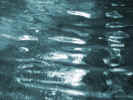 Change seems to be the word of the moment. With Barack Obama's election in the US, with chaos in financial markets, with the change in direction of economies. How should we deal with change?
Change seems to be the word of the moment. With Barack Obama's election in the US, with chaos in financial markets, with the change in direction of economies. How should we deal with change?Personally, I've reached one of those points where you wonder which direction you should go next. There's a debate in the Reform Taoist community about how we progress in the future - whether we continue the way we have been going or try a new direction. The question for me is "Is my journey best served by trying to fight for change within the organisation, or would it be better for those of us that want change to form a new community that reflects our needs at this time?"
I've been reading around looking for inspiration and I found some in Deng Ming-Dao's book Everyday Tao. He talks about the early observers of Tao, and how they found it by observing the world around them, seeing things born, grow and wither. He uses the image of a man running down a path to describe Tao. This movement and change is at the heart of the Tao, although of course stillness and stagnation are also there. It is in the movement and change that we see the vitality of the Tao. It got me thinking that if Reform Taoism has stagnated from my perspective, perhaps starting a new community where members were more able to express themselves and develop would be the "running man" path.
Any change is a step into the unknown - it's easier and safer to go with the status-quo. If you change, you might fail so maybe it's better to leave things as they are. But does this truly lead to a fulfilling journey through life though? If I'm asking the question, maybe the decision is already made? Is it possible to return to acceptance? I think you can see where this is leading me, but I've not completely decided so watch this space!
On the wider front, what does Taoism teach us about dealing with change? Change is inevitable. It can be held at bay for a time through effort, but it can never be stopped. In following Taoism we try to experience and understand our true inner nature. Using the analogy of water (well the clue's in the name of the Blog!) if we are in a river we can cling for as long as we can to the sides before our strength fails and we are swept helplessly downstream by the current. Or, through self-knowledge and self-confidence, we can embrace the flow of the river, let the current take us, and use our strength and skill at appropriate moments to avoid any rocks in our path. The latter is the Taoist way, but be warned! It can be scary.





